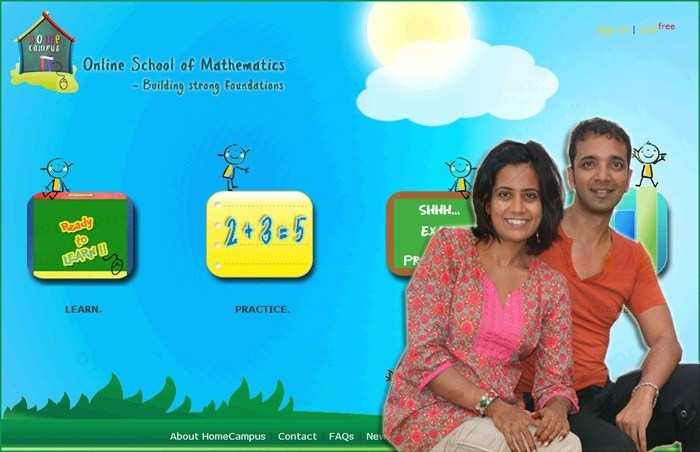Udaipur Couple set New Online Platform for Education
Education is often taken to be one of the highly transformed sectors in the world. And rightly so, as over time, the culture of education stumbled upon many changes, from traditional learning to the hi-tech and new age methodology, which further effected social and commercial perspectives of the subject.
 Education is often taken to be one of the highly transformed sectors in the world. And rightly so, as over time, the culture of education stumbled upon many changes, from traditional learning to the hi-tech and new age methodology, which further effected social and commercial perspectives of the subject.
Education is often taken to be one of the highly transformed sectors in the world. And rightly so, as over time, the culture of education stumbled upon many changes, from traditional learning to the hi-tech and new age methodology, which further effected social and commercial perspectives of the subject.
The system of education blended well with the internet revolution, number of opportunities and education resources are available online which makes it easy to excess more information.
Homecampus.com.sg is one such noticeable place on the web that promises to offer restrained educational structures and learning experiences to students, specifically for the subject of Mathematics.
Home Campus is run and managed by an Udaipur couple Farhat and his wife Mumtaz Pachisa, who are presently based in Singapore.
Farhat, 35, holds a Bachelor’s degree in Engineering from IIT Mumbai and a Master’s degree in Finance from Boston College, USA. Presently he is responsible for the Home Campus product design and development.
Mumtaz loves to teach and apart from developing the course material she leads the HomeCampus marketing and customer relationships. She holds a Master’s degree in Computer Science and Engineering from the University of Connecticut, USA.
Founded in 2010, Home Campus is an online school of Mathematics for elementary school students. The registration to the website is free. According to Farhat, there are already more than 4000 registered users actively using Home Campus website. “5000 unique visitors come to our website every month. We have already delivered more than 67,000 video lessons online” he says assertively.
When asked what motivated them to start this project, Mumtaz replies “I had a few students coming to me for math tuitions when Farhat suggested, “Why don’t you do it on a larger scale so more kids can benefit from it?” That was HC’s first breath.”
She continued “Seeing children terrified at the mere mention of the word “maths” is what motivated us to create something that made the subject terrific to learn.”
Explaining further, Farhat said “The use of technology – computers and the internet – in schools and at home is common. Today, kids learn more on YouTube than in the classroom. However, with all technological advancements the basic education should still be affordable and available to all because learning is every child’s right. And, it is with this belief, mission and motivation that we created Home Campus.”
Students can learn through video lessons, notes and practice through unlimited computer generated exercises while parents can monitor their children’s progress report through detailed reports.
The comprehensiveness of Home Campus worked well among its registered members that include both students and their parents. While talking about feedback they received from their students, Mumtaz told UT, “a parent once wrote, I really appreciate the fact that the lessons are idiot-proof, not just for my daughter but for me too. I really finally understand the topic on Ratio now.”
“Some request us to teach us other subjects like Science and English, too, while others ask us to include higher levels of maths as well” says Mumtaz.
Presently, Home Campus is only teaching Math, but in near future the site might come up with more subjects.
When asked about the future plans of Home Campus, the couple said that they would like to collaborate with schools to make Home Campus available to more and more students and also like to work with social organizations in India and abroad to make Home Campus accessible to the less privileged children.
Talking about Indian education system, Mumtaz said, “To a large extent, the education system in India is still solely based on books. Not enough emphasis is given to teaching through other hands-on activities.”
“There is tremendous peer/social pressure from a very early age. Though this is a common scene in some Southeast Asian countries like Singapore as well, steps are being taken to improve that”, she added.
“While in Western countries, very less emphasis is laid on exam-based evaluation during elementary years. There is also a prevalence of home schooling in those countries” explains Mumtaz.
Regardless of all challenges in system, the couple is all set to start a new style of learning for students, making education simpler and fun.
To join us on Facebook Click Here and Subscribe to UdaipurTimes Broadcast channels on GoogleNews | Telegram | Signal


